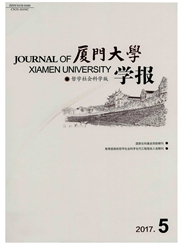

 中文摘要:
中文摘要:
区域经济系统基本符合耗散结构的特征,可以利用熵变模型来度量系统有序度的动态变化。利用灰关联熵和1998—2009年间我国省际面板数据对我国各省际的“资源—经济”系统的有序度进行分析。“资源—经济”这一经济关系存在时变特征,并利用状态空间模型分析资源禀赋对“资源—经济”系统有序度的影响,从而从系统论的角度对“资源诅咒”命题进行了再检验。研究结果表明:在整个样本区间里,“资源—经济”系统的有序度同资源本身有着负相关的关系;资源禀赋对“资源—经济”系统熵变值在2003—2005年三年间的影响是最大的;资源禀赋会通过人力资源途径和制度途径产生“资源诅咒”,但这两种途径的影响度在不断减弱。
 英文摘要:
英文摘要:
This study supports the theory that a regional economic system fits in with a dissipative structure and proposes that dynamic changes of coordination in the system can be measured by using the model of changing entropy. Drawing on the gray relational entropy and China' s provincial panel data between 1998 and 2009, this study analyzes China' s inter - provincial coordination of "resource - economy" systems. It is found that the "resource - economy" relation varies with the change of time and that therefore it is best to look into the effect of resource endowment on the coordination of "resource - economy" systems by using the state - space mode so that the concept of "curse of resources" can be re - examined from the perspective of system theory. Our results indicate that the coordination of "resource - economy" systems has a negative correlation with resource endowment across all the samples; that resource endowment had the strongest effect on the system entropy of "resource - economy" systems between 2003 and 2005; and that resource endowment will generate the "curse of resources" through human resource channel and regime channel, but the effect of both are weakening all along.
 同期刊论文项目
同期刊论文项目
 同项目期刊论文
同项目期刊论文
 期刊信息
期刊信息
